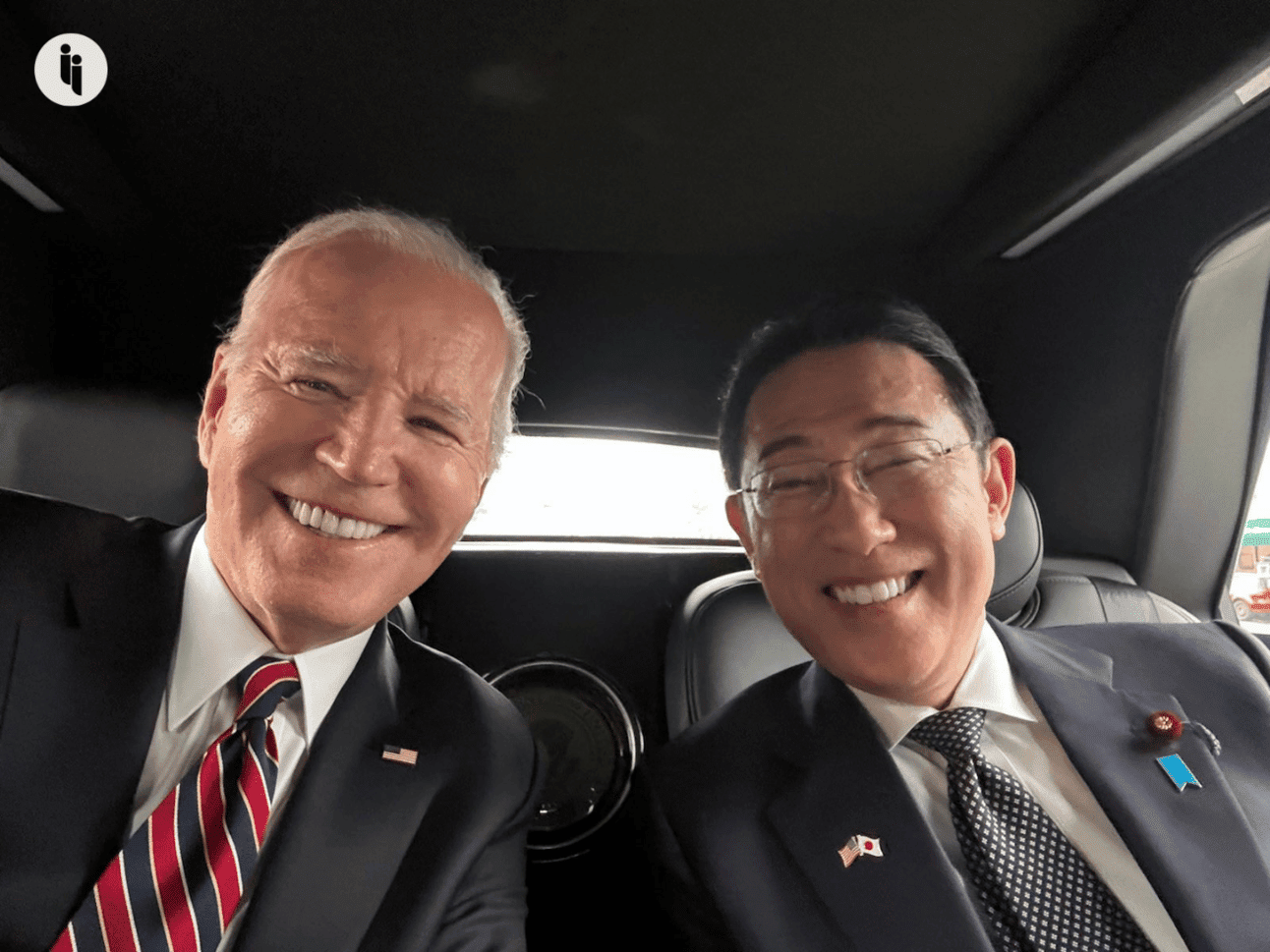Japanese Prime Minister Fumio Kishida has kicked off his US visit, hitching a ride with President Biden in ‘The Beast’ to crush some crab cakes over at BlackSalt last night, before continuing the week’s formal program today (Wednesday).
It’s all happening amidst what Kishida describes as a “historic turning point” for the world. And rather than give media outlets indigestion by revealing all the visit details at once, officials have been drip-feeding them in advance.
So we have a good sense of what the leaders will announce this week, and what signals they’re trying to send. Here are the six quick signals you should know:
Stay on top of your world from inside your inbox.
Subscribe for free today and receive way much more insights.
Trusted by 99,000+ subscribers
No spam. No noise. Unsubscribe any time.
1) ‘Alliances are worth it’
Japan has seen signs of US fatigue towards the world, so the visit is a chance (with the White House) to prove the value of alliances to sceptical US lawmakers and voters alike. To that end, Kishida will start by highlighting what he’s already doing, like doubling defence spending. His message? We’re not freeloaders.
2) ‘Alliances transcend elections’
Meanwhile, Biden faces an election in November, while Kishida has a party ballot in September. They’re both lagging in the polls, so their agenda’s sheer size (as much as its content) aims to highlight the alliance’s breadth and durability, regardless of who’s in office.
3) ‘Democracies can still deliver’
Looking ahead, a big part of our world’s “historic turning point” hinges on rivals now offering very different visions for the world. So in defence of democracy’s ability to get big stuff done, Kishida and Biden will likely announce some suitably big projects, like Japan’s participation in NASA’s Artemis moon program.
4) ‘We’re reliable partners’
Looking abroad to friends and fence-sitters alike, Biden and Kishida will also announce a new Japan-based disaster relief hub, with more aid pre-positioned for the region’s next natural disasters. This leans into their strengths around emergency relief, which really helps shape perceptions on the ground.
5) ‘We can still walk and chew gum’
But the last couple of years have raised questions around US stamina, so these kinds of major visits are also a low-cost way to signal that the US can still defend its interests in the Pacific while responding to crises elsewhere. That’s partly why all five (✋) of Biden’s state dinners to date have feted Indo-Pacific leaders.
6) ‘So… don’t mess with us’
But of course, the week’s most head-turning details will focus on defence plans, like a new satellite constellation to track hypersonic weapons (held by China, Russia, and North Korea); paving the way for Japan to repair US ships (rather than schlep them back across the Pacific); and boosting co-production of arms.
This kind of defence integration is tough and time-consuming, but the signal is clear: in response to China’s build-up in a more complex world, US allies are pooling their strength.
And the idea here, as with the whole visit, is to make China and other rivals think very carefully about their next moves.
INTRIGUE’S TAKE
It’s also interesting to reflect on what likely won’t be mentioned this week: Washington’s avoidance of the mega trade deal it helped negotiate (tongue-twistingly known as the CPTPP); and Washington’s opposition to the proposed buyout of US Steel by Japan’s Nippon Steel.
These are both real irritants for Japan, but Japanese diplomats will have made clear to Tokyo there’s no point pushing them in an election year. Still, that’s not to say Japan is therefore sitting on its hands. Kishida’s visit to North Carolina will seek to nudge the debate by highlighting Japan’s role as America’s top investor, backing US job creation and tech leadership.
The other question is whether Kishida uses tomorrow’s address before Congress (Japan’s second-ever) to urge continued US support for Ukraine. He’s previously warned that “today’s Ukraine could be tomorrow’s East Asia”, but he’ll also be mindful that today’s Biden could be tomorrow’s Trump.
Also worth noting:
- The US-Japan-Philippines summit tomorrow will likely call out China’s actions in the South and East China Seas, and announce joint patrols in areas claimed by China (contrary to a court ruling).
- There was an expectation Japan could be formally added to parts of the Australia-UK-US ‘AUKUS’ defence pact, though an AUKUS statement on Monday seems to have kicked this particular can down the road.
- There’s also been reporting that Washington could (at Tokyo’s request) devolve more authority to the US military command in Japan, though it seems the details are still being ironed out.







